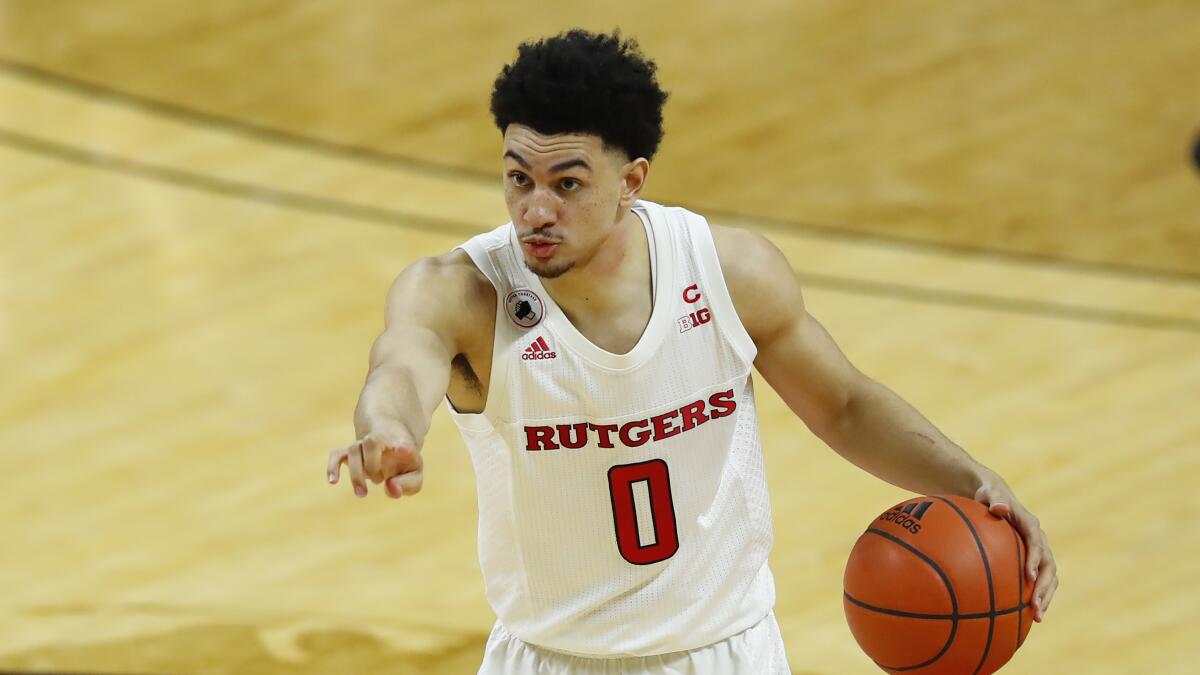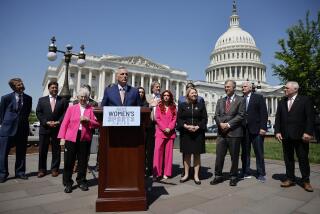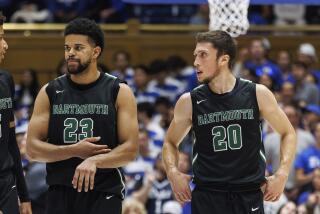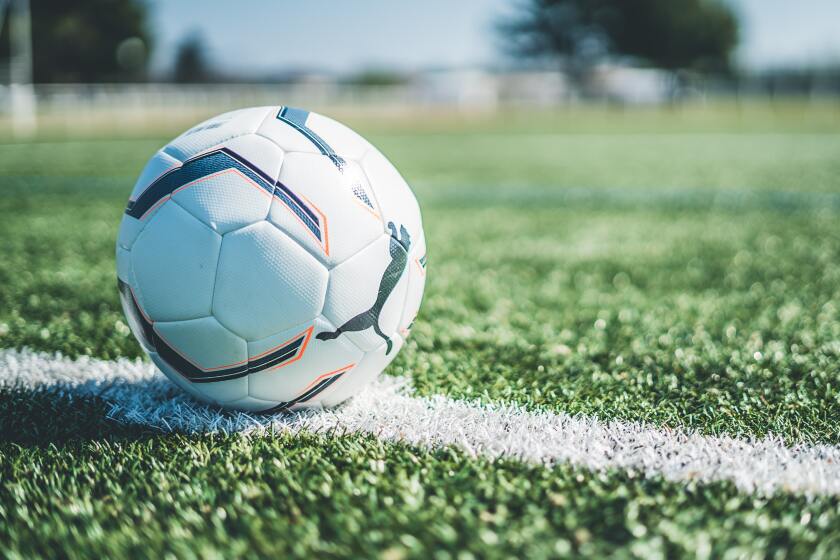Players launch #NotNCAAProperty movement a day before March Madness begins

- Share via
The latest movement in the fight for college athlete rights began with intrigue Wednesday on the eve of the NCAA men’s basketball tournament with a tweet from Rutgers guard Geo Baker and the hashtag #NotNCAAProperty.
By night’s end, Ramogi Huma, a former UCLA football player and the executive director of the National College Players Association (NCPA), released a call for action from players featured on 15 of the 68 teams gathered in Indianapolis for the start of March Madness.
Under the heading “college basketball players launch March Madness protest,” the athletes asked for: NCAA rule changes that allow them to secure representation and profit from the use of their name, image and likeness by July 1; a meeting with NCAA president Mark Emmert; meetings with state and federal lawmakers and President Joe Biden as they seek “physical, academic and financial protections”; and a ruling from the Supreme Court in Alston v. NCAA in support of college athletes no longer having limits on their earning power.
One element missing from the news release: an answer to the question “or else what?”
Of course, that reveal could come as early as Thursday, when the tournament tips off with the First Four games. Friday, the first round begins with the traditional 16 games, followed by another 16 on Saturday.
“The NCAA too often treats college athletes like dollar signs rather than people,” the release stated. “College basketball players from multiple teams protesting NCAA rules during the NCAA’s own March Madness tournament is unprecedented and comes at a time when lawmakers and the U.S. Supreme Court will be making decisions that will affect the freedoms and rights of generations of future athletes.”
The #NotNCAAProperty movement started during the summer, according to the release, when Baker, Iowa’s Jordan Bohannon and Michigan’s Isaiah Livers held a Zoom meeting with players from around the Big Ten and Huma. The discussions focused on the safety challenges presented by the COVID-19 pandemic.
During the summer, the NCAA’s leadership stated college sports would not sequester athletes in a bubble as the NBA did to complete its season, saying college sports are not pro sports. But, seeing no other option as new COVID-19 cases prompted the cancellation of select games all season, the NCAA decided to move the entire men’s basketball tournament to Indianapolis, where it would create a makeshift bubble to keep teams relatively COVID-free and play the games that would net schools $800 million in TV revenue.
Now in Indy, players met Tuesday night and decided to launch their protest.
Baker led the charge, tweeting, “The NCAA OWNS my name image and likeness. Someone on music scholarship can profit from an album. Someone on academic scholarship can have a tutor service. For ppl who say ‘an athletic scholarship is enough.’ Anything less than equal rights is never enough. I am #NotNCAAProperty.”
Baker’s teammate, Ron Harper Jr., then tweeted, “HEAR US!! We deserve the rights to OUR names. #NotNCAAProperty”
Fellow Big Ten guard Jordan Bohannon of Iowa followed the Scarlet Knights, tweeting, “It’s been far too long. Time for our voices to be heard. #NotNCAAProperty.”
Michigan forward Isaiah Livers joined in, too.
Under pressure from dozens of states passing and introducing legislation to allow players to profit from use of their name, image and likeness, the NCAA has spent the past 18 months creating work forces and having conversations about the topic but producing no rule changes. The association had said it would vote on NIL rules in January before delaying the vote while continuing to work toward a federal solution with Congress, which flipped to a Democratic majority days before the delay was announced.
The college athlete rights movement gained steam this year as players were asked to compete for their schools during a pandemic. Pac-12 football players came together under #WeAreUnited, also with help from Huma, a Southern California native, making demands of the league office in order for them to play the season.
More to Read
Go beyond the scoreboard
Get the latest on L.A.'s teams in the daily Sports Report newsletter.
You may occasionally receive promotional content from the Los Angeles Times.











